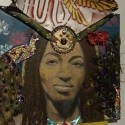Black blood donors badly needed
 Black donors are badly needed to help save lives
Black donors are badly needed to help save lives
BY: Natalia Peart
“If we don’t speak up, no one will speak for us,” says Unita Louis, founder and president of the Sickle Cell Disease Parents’ Support Group.
Over the past few years, her association has partnered with Black History Ottawa and Canadian Blood Services to host informational events and seminars aimed at increasing awareness of sickle cell disease. Attendees have the opportunity to check their blood type and register for the OneMatch Stem Cell and Marrow Network through Canadian Blood Services.
“There’s a tendency within the black community to ignore or hide health issues, resulting in many being unaware of health conditions they have, or not being able to help others who are struggling with these illnesses,” says Godwin Ifedi, president of Black History Ottawa.
One of the most serious problems is a critically low number of African and Caribbean people donating blood or registering as matches for stem cells and bone marrow.
“Blood donation is a sensitive issue among African and Caribbean people due to religious and cultural beliefs,” says Louis. “But people need to realize that one unit of blood can save four lives. Sufferers of sickle cell, a blood disorder predominately affecting black people, may need blood transfusions every six to eight weeks, like my son Brent once did. This could require eight to 12 units of blood.”
Those who need blood transfusions more frequently should receive donations from someone within their racial group, which makes it more likely they’ll get the right match. Otherwise, patients can develop a resistance. Angela Christopher, who is currently in remission from leukemia, hasn’t yet found a bone-marrow match. She isn’t trying to further her donor search, but advocates for others like her.
Less than 0.5 per cent of registered donors are black, but “if [the black community] were aware [of the issues], maybe they would act,” Christopher says.
Canadian Blood Services provides free screening for those interested in the prospect of donating, and can register individuals in the OneMatch program.
Pierre Campeau, Ottawa’s Canadian Blood Services media relations officer, says those who register for OneMatch become part of an international database that seeks to provide stem cells and bone marrow to people worldwide, and they’re always looking for new donors.
“You save a life when you register for OneMatch,” he says.
Jennifer Philippe, director of OneMatch, says it’s been difficult to gain the black community’s attention. Because it’s easier for patients to find matches within their racial group, she says it’s “important our network reflects the diversity of the Canadian mosaic.”
Louis says many of these problems could be solved if black community members were more proactive about these issues: “We need to take care of ourselves and our health.”
Also see this article about sickle cell anemia






Leave your response!